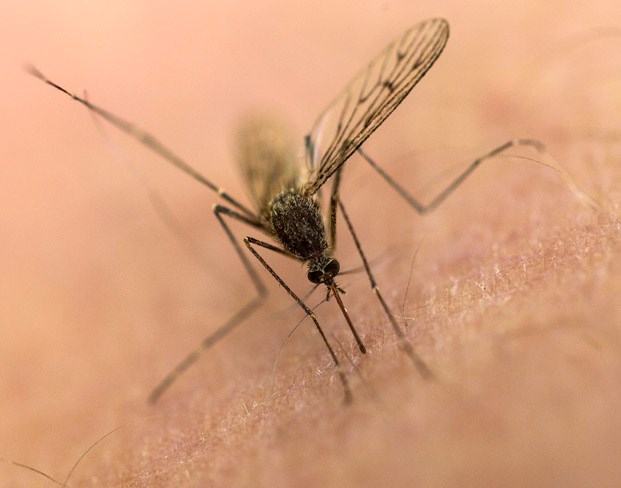St. Albertans have found themselves swatting and swiping after a persistent species of mosquitoes has blossomed in the capital region.
Although it may seem like the little buzzers are everywhere, Peter Daly with City of Edmonton pest management lab, said that the bites inflicted this year are likely from a species of mosquito that is very persistent.
“There is a very high proportion of mosquitoes that are very persistent biters and are capable of being active in the daytime,” Daly said.
Typically mosquito species are mostly active during dawn and dusk and stay away from the hot mid-day temperatures. The species of mosquito that is abundant right now does not shy away from the afternoon sun, which may be extra annoying for residents.
Another problem with this year’s species is that they are not easily deterred by DEET, although Daly said that the bug spray can still help keep them at bay.
As far as mosquito seasons go, this year is well within the normal range, Daly said. The city of Edmonton monitors mosquito traps and keeps track of the species and amount of the summer pests in the city.
This year the city found 55 female and 70 male mosquitoes in their traps, compared to very few in the traps in previous years.
The past three years have been very dry, Daly said, which is not the optimal conditions for the bugs.
“If anything it is still quite dry out. We had a moderate amount of snow and in the last little while we had almost nothing. This is well within what a normal average springtime would be in terms of mosquito numbers.”
Luckily the type of mosquito thriving right now has a short life cycle due to its fast metabolism. But that doesn’t mean mosquito season is over. Some of the other 30 species in the region will begin to thrive once this type dies down.
Usually mosquito season peaks in late July and early August in the capital region but Daly said he can’t predict what will happen this year.
“I don’t like to speculate simply because what happens with mosquitoes later in the summer is completely dependent on the weather and how much rain we get,” Daly said.
The bugs breed in temporary pools of water rather than permanent ones so there must be puddles on the ground for them to reproduce.
“They are not going to breed in the ponds that have lots of predators in them with deep water,” Daly said.
The city of Edmonton sprays for the pests outside of the urban core in a “several mile corridor within the outskirts of the city.”
Regulations do not allow for the treatment to be applied near occupied buildings and Daly noted it is more effective to spray in less populated areas.
“In the middle of an urban area there isn’t going to be nearly as much development of them,” Daly said.
The spray that is used is very specific for mosquitoes and based on a particular bacteria that the mosquito larva eat that shreds their insides.
The city of St. Albert does not use sprays to control the local mosquito population but relies on wildlife like bats to help curb the summer pest problem.
A spokesperson from the city of St. Albert was not available for an interview.




